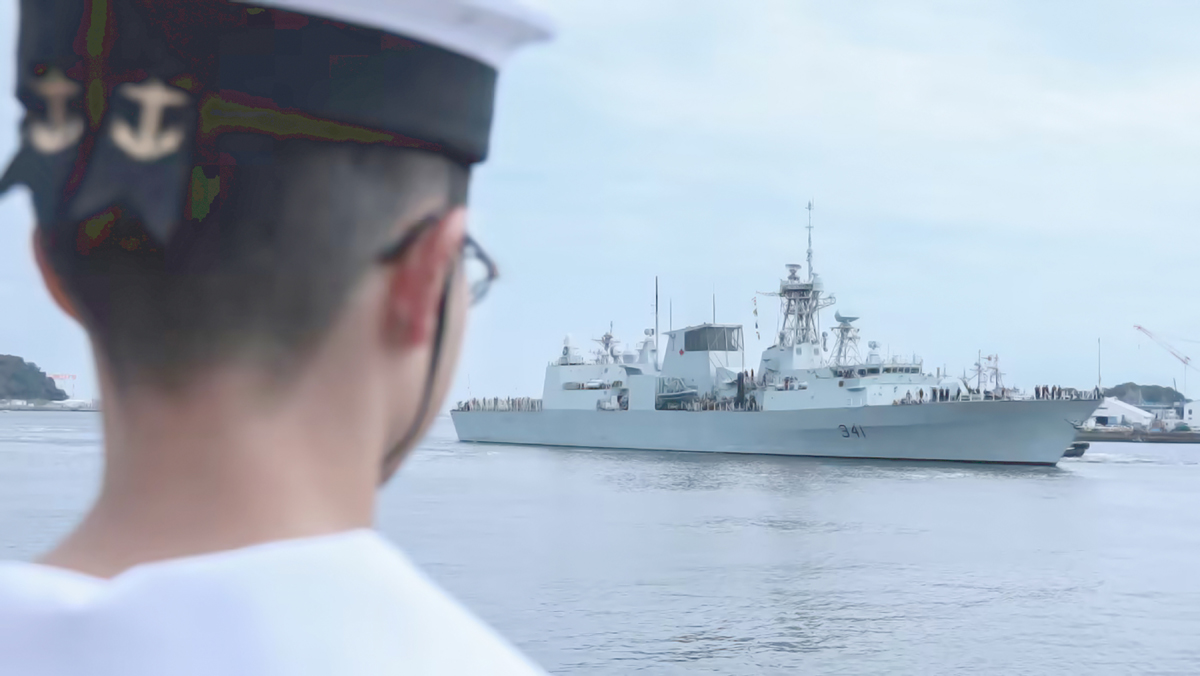AKIRA KITADO
Three Canadian naval vessels arrived on August 28, 2023at Japan’s Yokosuka port as Ottawa moves to bolster Indo-Pacific security amid soaring concerns about China and North Korea’s saber-rattling.
Two Royal Canadian Navy warships, the Ottawa and Vancouver, along with the supply vessel Asterix, arrived at the port south of Tokyo — home to bases of the U.S. Navy and Japan’s Maritime Self-Defense Force – after departing Canada’s west coast in mid-August.
As their first port of call, the vessels will be at Yokosuka until Friday to refuel, let the crews rest and boost relations with their Japanese hosts before setting out on joint exercises with regional partners including the U.S., Japan, South Korea, Australia and New Zealand.
Among the plans are exercises in the tense Taiwan Strait, where China has sent military vessels near Taiwan, which Beijing claims as its territory. Robert Watt, the Canadian defense attache to Japan, confirmed the exercises but did not disclose details.
“Nothing in the current deployment is designed specifically against one nation or to deter any specific nation,” Watt said Monday when asked if China is being targeted, but he added that Canada is working with regional partners to support a free and open Indo-Pacific.
The deployment is part of Canada’s Operation Projection, which is set to be upgraded under the name Operation Horizon, a new operation that then-Defence Minister Anita Anand announced in June at the 2023 Shangri-La Dialogue, Asia’s premier defense summit.
“China is an increasingly disruptive global power that increasingly disregards international rules and norms,” Anand said at the time. “We will challenge China when we ought to, and we will cooperate when we must.”
The beefed-up operation is aimed at deepening cooperation with allies and partners and empowering Canada to play a more active role in regional security, with the number of warships deployed annually set to rise to three from the current two. “The operation will increase the level of our commitment,” Watt said.
As part of the multinational exercises and engagements, the Ottawa will focus on Southeast Asia, while the Vancouver will look to security in Northeast Asia. The Vancouver will also help monitor United Nations sanctions against North Korea over its nuclear weapons program.
“What we’d like to see from our partners is more integration of Canada into those various exercises and operations,” the commanding officer of the Vancouver, Meghan Coates, said Monday.
Canada has been growing its Indo-Pacific military presence, with its first comprehensive regional strategy released in November. The strategy says, “China’s rise, enabled by the same international rules and norms that it now increasingly disregards, has had an enormous impact on the Indo-Pacific, and it has ambitions to become the leading power in the region.” Beijing-Ottawa relations have been strained in recent years.
In 2018, Canadian authorities detained Huawei Technologies executive Meng Wanzhou at the request of the United States. Shortly after, China arrested two Canadians on spying charges. All have since been released.
This year, both countries expelled each other’s diplomats after an envoy at the Chinese Consulate in Toronto reportedly targeted a Canadian opposition lawmaker and his relatives in Hong Kong.
Courtesy: NKKEI Asia.


